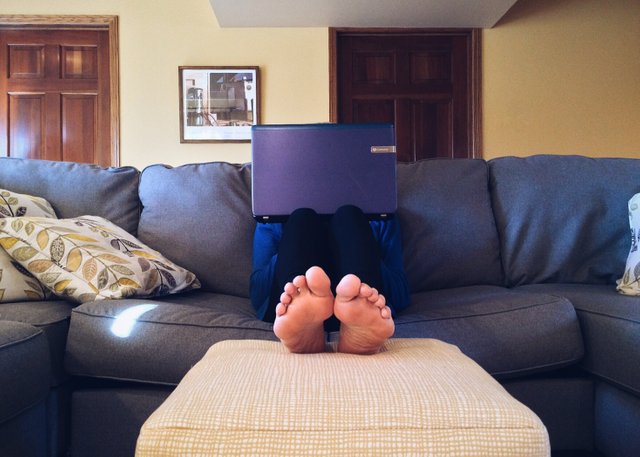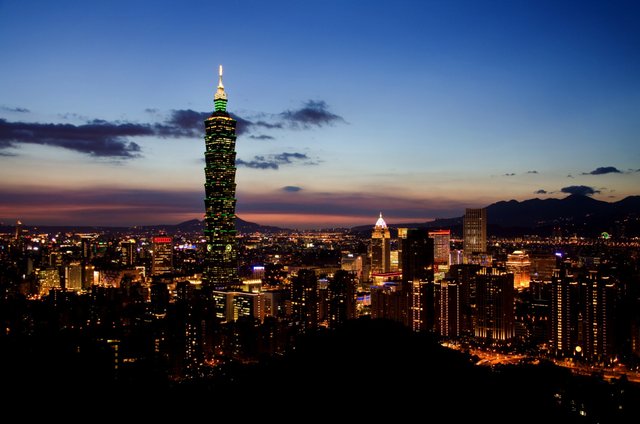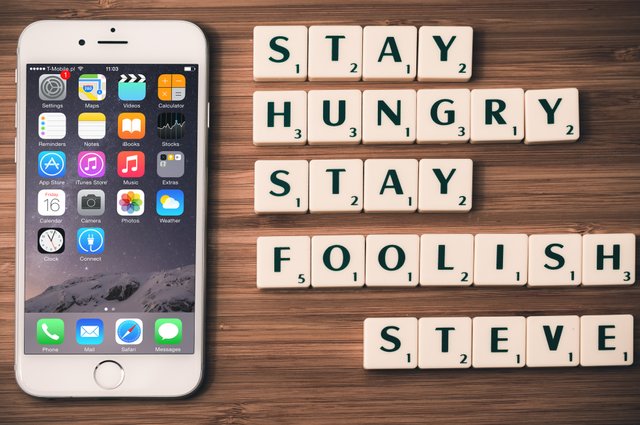How I launched an iOS app while couch surfing in Taiwan

Couch surfing. Some of you may have stumbled upon the term, some may even be reading from a couch right now. Couch surfing has grown to be a popular way to travel on a budget for travellers across the world. However, this was not my plan when I decided to drop everything ten months ago in my very privileged life back in Toronto, Canada.
For the past two years, I owned a disruptive online printing company back home.
This online printing company was disruptive because similar to AirBnB and Uber, I brokered all of my printing. I raked in over $100K in revenue all in my underwear, from the comfort of my home with no actual printers. Yes, that’s right! I didn’t own a single piece of machinery. How it worked was quite simple. I was in good standing with a few very large printing companies in Canada. I created a portal, where I would dump all the quotes I got from perspective clients, and just like the dog eat dog world of any market, the printing companies would quickly jump on the quote and give it their best.One would give me the best price, another the fastest and the other would speak quality. These printing wholesalers offered me trade prices of course. I would then take these quotes and quickly email them to my client. I was then able to offer my client speed, quality and price. My clients all knew that I didn’t own a single printer. I was lucky enough to work with the likes of Airbnb, Nike, NHL Canada and Nando’s Chicken. After catching up on all of my debts from university (yes I am very fortunate), I quickly sold my car and pretty much everything I owned, and ventured across the world to Taiwan to learn code (swift) and adventure.

On a hot day in September, I landed in Taiwan.
This was when I found out how ignorant I was to the rest of the world.About a month went by, the excitement from travelling started to diminish, and reality started kicking in.One day, I was at a 7-11 outlet pounding back a couple bottles of water to replenish all the hydration I had lost. I continued to walk aimlessly, discovering new things at every alley in the city. I looked around for a garbage bin…but couldn’t find one! “What?” I thought, “how could Taipei be so clean with so few garbage bins around the city?” I quickly decided that I would dedicate my time for the next little bit to walking around the city and mapping every garbage bin I saw. I knew that I wasn’t the only one with this problem. Sounds a little crazy, right?
From that incident, I quickly discovered Open Data.
A plethora of free, open information available to anyone, anywhere. Open Data was basically screaming to be used. Taiwan also happened to be the global leader in open data. With a quick search I found 1,800 garbage bins all scattered across the city. A few weeks later, we had a map and every garbage bin in the city. But, so what?It was a few days later when I realized an innovative edge was needed and pivoting wouldn’t hurt either. I decided to let our users not only find garbage and recycling bins across the city, but also instantly report full trash and recycling bins with a tap of a finger (things were getting interesting). Imagine if we could collect data on these 1,800 bins over a period of time. Could we optimize waste management routes? Could we save waste management money? Yes, yes we could.
I was lucky enough to meet two guys who shared my passion.
One was an iOS developer and another a backend developer. We all fell in love with the project quickly, and realized its potential to change how cities functioned around the world.R&D was my life for the next couple months. I became more familiar with the market keywords like IoT, Smart City, big data. My research pulled out countless articles, and I studied success stories like this one here. I quickly knew I was getting on to something, but a pivot was still needed. Users don’t gives a sh*t about garbage bins…do they?
We decided that we weren’t going to stop at just being a garbage bin finding app.
I now look back to that decision and thank the pivot gods above for us taking on new route. Twelve categories were chosen, each worth their place on our app. Each an integral part to city life. The categories are as such:
- Washrooms – Users could find/ report dirty washrooms.
- Trash bins – Users could find and report full trash bins.
- Recycling bins – Users could find and report full trash bins.
- Parks – Not as easy to find as you think.
- Water fountains – Reduce plastic waste, strengthen immune system.
- Cellphone charging station – So critical but never mapped.
- Sports facilities – Basketball courts, soccer fields, tennis courts (promote healthy lifestyle).
- Free wifi spots – Self explanatory dude.
- Electric car charging stations – Emerging market, hard to find, especially for Tesla vehicles.
- Parking – Live parking spot availability, reduce traffic and pollution.
- Bike paths – Never mapped and promotes healthy lifestyle.
- Bike share – Live bike share counts.
On 14 May, 2016 we launched in Taipei.
We didn’t tell anyone, including the media, as we wanted to get a feel for the organic response of the market. We wanted to get feedback, and a better understanding of what our users wanted. Three weeks later, we climbed to the top 30 Free Navigation apps in the Taiwanese market (out of thousands), we had 530 installs and about 25 active users everyday (slow and steady). We were making strides every week updating our software and continuously developing. We met with the Taipei government, and they were blown away with what we had done with their data.This of course would not have been possible without the help of my partners and the owners of the couches. But it speaks to anyone who claims that in order to startup, you need money. Of course you need money to advertise, participate in trade shows or fly to other countries. But taking a concept from idea to execution is a task that can be done today with zero to little funding.Thanks for taking the time to read this lengthy article. Do reach out to me personally if you want to know more about Taiwan’s startup scene.
This story was written by me last year and I wanted to share it with the steemit community. Please feel free to ask any questions :)
